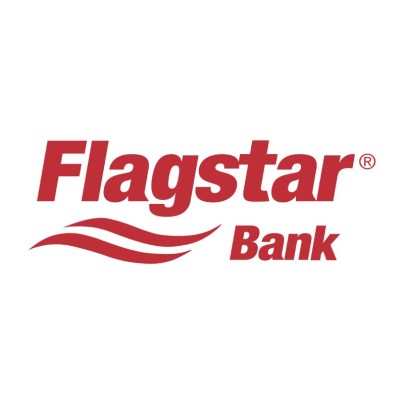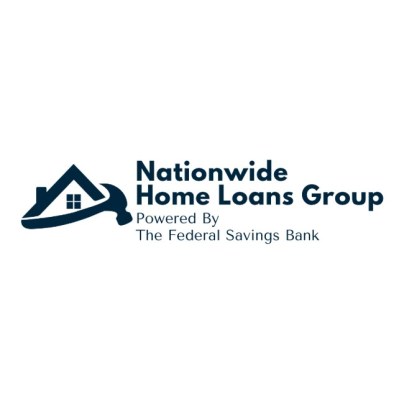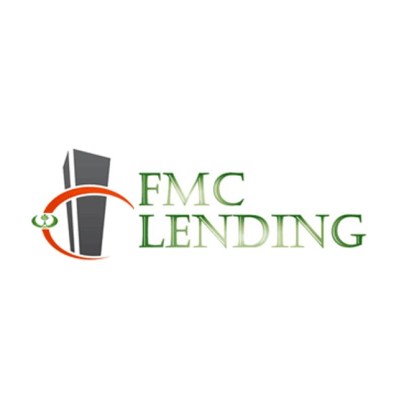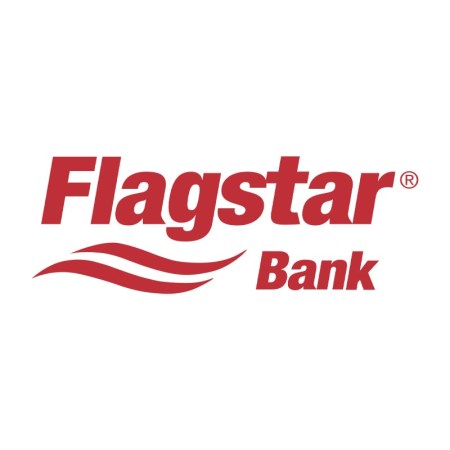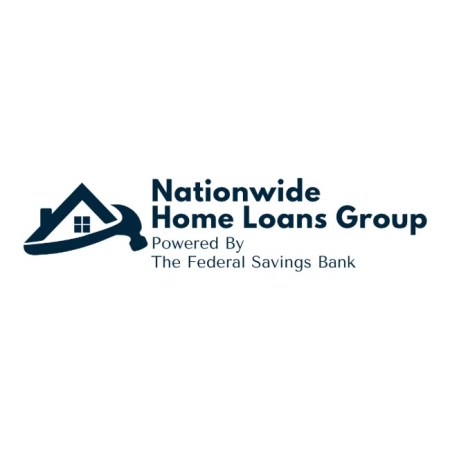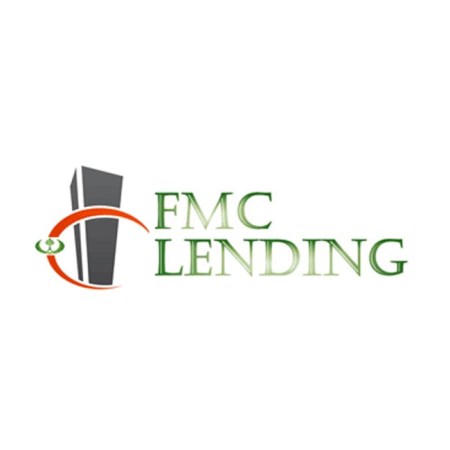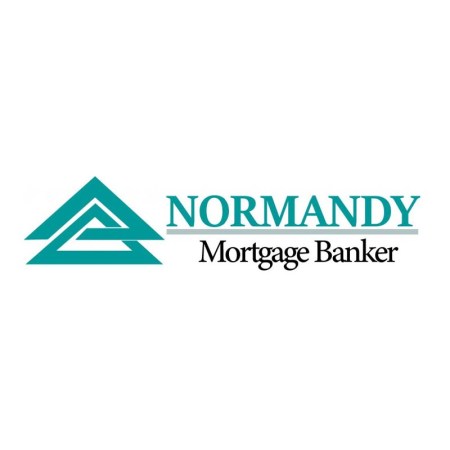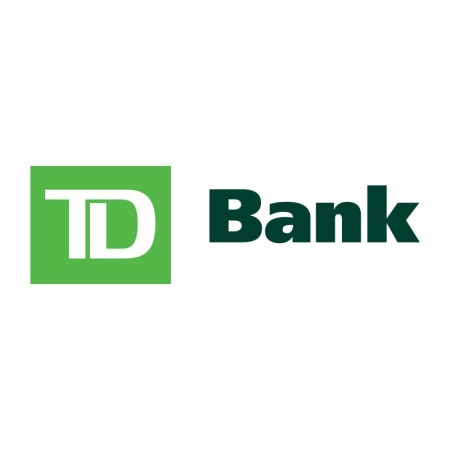
We may earn revenue from the products available on this page and participate in affiliate programs. Learn More ›
Finding the perfect home isn’t always easy, especially for home buyers with very particular tastes. After months of searching through listings and attending open houses, prospective buyers may be ready to give up. If they’re not having much luck with the housing market, home buyers have another option to explore: building their dream home on a hand-picked plot of land.
With the help of a construction loan, a home buyer can build a home and finance its purchase with traditional mortgage terms. How do construction loans work, exactly? This type of financing typically covers the major expenses that buyers incur when building a house, including the land purchase, labor, materials, and building permits. In many cases, lenders extend these loans with the expectation that construction will take no more than a year to complete. Borrowers may have the option to extend the construction period, but this isn’t always the case.
Finding a reputable contractor is a key consideration when building a house, but it’s equally important that home buyers find a construction loan company that offers the right terms to fit their needs. The best construction loan lenders can support buyers at every phase of the process and help them build the perfect home.
- BEST OVERALL: Flagstar Bank
- RUNNER-UP: Nationwide Home Loans Group
- BEST FOR FAIR CREDIT: FMC Lending
- BEST ONLINE EXPERIENCE: Go Mortgage
- BEST FOR SELF-BUILD HOMES: Normandy
- ALSO CONSIDER: TD Bank

What to Consider When Choosing One of the Best Construction Loan Lenders
The best construction loan providers can offer a wide variety of benefits to consider, but not all lenders will be the right fit for every home buyer. Prospective borrowers may want to prioritize factors that affect availability, loan options, and cost, among other considerations. When vetting the best construction loan companies, buyers will likely find that some companies specialize in construction loans, while others offer this type of financing in addition to traditional mortgages. Finding the right lender for every situation will require a thorough assessment of each candidate’s capabilities and how those strengths match a buyer’s top priorities.
Coverage Area
The first consideration that many buyers may want to weigh is a construction lender’s service area. Some companies have a nationwide footprint, operating in every state in the country. However, other lenders may have much smaller coverage areas, providing construction loans to select states or regions. Checking mortgage companies’ service areas can be a good way to quickly narrow down the list of potential candidates so only viable lenders are in the running. If a construction loan lender doesn’t service the specific location where a buyer is planning to build a house, then that company can be removed from consideration.
Loan Type
Lenders may offer a few types of construction loans that can appeal to different borrowers depending on their circumstances. The most common type of financing that buyers are likely to encounter is a construction-to-permanent loan. These loans are structured to support both the build and the home purchase. Here’s how a construction loan works with this particular type of financing: The first phase of the loan covers the construction period, which may run anywhere from 6 to 12 months—or potentially longer in some cases. During this time, the borrower will often only be required to pay interest on the loan. When construction is complete, the loan will convert into a mortgage that will be paid off in full over an extended period of time. Loan terms typically mirror traditional fixed-rate mortgages, running either 30 years or 15 years.
In some cases, buyers may also find lenders that are willing to finance self-build homes, which means the borrower handles construction themselves without working with a third-party builder. Lenders usually prefer to extend loans to borrowers who have separate contractors, though, so this type of home builder financing is relatively uncommon.
Lenders may also offer construction-only loans; as the name suggests, these loans exclusively cover construction costs. Once the home has been built, the borrower will need to take out a second loan to finance the home purchase. As such, buyers will need to go through the loan application and approval processes twice—not to mention pay two sets of closing costs and lender fees.
There’s also a third option that may be available: renovation loans. Although they fall under the category of construction loans, renovation loans can only be used with existing structures. If a buyer finds a listing that’s in the perfect location but the house itself has fallen into disrepair, they can use a renovation loan to finance the purchase of the home as well as any repair work that needs to be done to restore it to its former glory and make it habitable again.
Depending on what type of financing a buyer is looking for—construction-to-permanent, construction-only, or renovation—they may be able to further cull their list of potential candidates by nixing lenders that don’t offer the right kind of home construction loan.
Minimum Credit Score
Construction loans can present greater risk for lenders compared with traditional mortgages. This is because loan providers are financing not only the purchase of a home but its construction as well. With that in mind, many lenders set more rigid standards for borrowers to meet in order to qualify for a loan. In particular, buyers may find that they will need a higher credit score to secure a construction loan than they would if they were to go out and apply for a mortgage. Lenders typically look at FICO scores—three-digit credit scores ranging from 300 to 850—when reviewing an applicant’s credit history.
Lenders may be more likely to require borrowers to have good or even exceptional credit to qualify for a construction loan. Minimum credit score requirements will vary from lender to lender—and in rare cases, lenders may not have minimum requirements at all—so it can be a good idea to check credit score requirements before applying for a construction loan.
Maximum Loan-to-Value (LTV)
Loan-to-value (LTV) is an important factor that lenders consider when deciding whether or not to extend a loan to a potential borrower. LTV compares the size of the loan to the expected value of the property. Borrowers can lower their LTV by agreeing to make a larger down payment, increasing their initial equity and reducing the size of the loan amount.
Using this calculation, lenders can get a better sense of how risky a particular loan may be. Higher LTV ratios indicate that the lender is taking on more financial risk because the borrower is putting less money forward for a down payment. That, in turn, could suggest that the borrower may lack the finances necessary to keep up with their mortgage payments and repay the loan amount in full. As such, lenders may set maximum LTV ratios for buyers to qualify for a construction loan. Conversely, borrowers who present lower LTV ratios may be able to secure more favorable loan terms, including lower interest rates. When vetting construction loan lenders, buyers may want to look at any maximum LTV requirements in place and think about how their down payment will affect their own LTV ratio.
Eligibility Requirements
Beyond credit scores and LTV ratios, there may be other eligibility requirements that borrowers need to meet in order to qualify for a construction loan. For instance, lenders may request proof of income to verify that the borrower will be able to make their monthly payments and repay their loan as outlined in the amortization schedule. The amortization schedule lays out when all payments will be due and what amount is owed with each payment.
When vetting prospective borrowers, lenders will review any existing debt to get a better understanding of the applicant’s ability to manage and repay debt. To that end, debt-to-income (DTI) ratio can be an important factor that lenders weigh when deciding whether to extend a loan. DTI compares the amount of monthly debt payments a person owes with the amount of income they bring in each month. Buyers with high DTI ratios may not qualify for a construction loan, but these requirements vary from lender to lender.
Interest Rate
When considering the total cost of a construction loan, borrowers will likely want to take a close look at their interest rate. Construction loan rates can be fixed or variable, which can have a major impact on the amount of interest that the borrower pays over the life of the loan. Fixed rates never change, so borrowers pay the same amount each month until the loan is repaid. Variable interest rates may go up or down depending on changes to prevailing mortgage rates. As such, borrowers may see their monthly payment change from year to year, and they may wind up paying more interest with a variable rate than if they had locked in a fixed rate.
In general, construction loans tend to come with higher interest rates than traditional mortgages on account of the lender’s added risk. Until the home is built, there’s no collateral for the lender to attach to the loan, so they’re likely to charge more interest to offset that risk. Some lenders may offer lower interest rates compared with other providers, though, so it’s likely worth a home buyer’s time and energy to shop around and compare rates.
Down Payment
Borrowers may find that they need to put down a certain amount of money as part of their down payment to qualify for a construction loan. It’s not unusual for lenders to require down payments as high as 20 percent to 25 percent of the anticipated value of the home once it’s built. That being said, lenders rarely publish minimum down payment requirements because they often consider each applicant’s total risk profile on a case-by-case basis. Borrowers who present less risk overall may be able to secure a loan with a lower down payment.
Buyers could take advantage of lower down payment requirements by working with lenders that provide new home construction loans through government programs. Some government-backed construction loans, such as VA construction loans, have no down payment minimum at all. For home buyers who are concerned about affording the initial up-front cost of a down payment, it can be important to explore all financing options.
Construction Period
Arguably the most commonly used construction loan is the construction-to-permanent loan because it streamlines and simplifies the entire financing process. Rather than take out two separate loans to first cover the costs of building the house and then finance its purchase, buyers can use a construction-to-permanent loan for both expenses. As noted, these loans are split into two phases: the construction period and the mortgage period. Many construction loan lenders will stipulate that the construction period take no more than 12 months—some financing terms may require even shorter time frames. Other lenders may have no set construction period timetable at all. Home buyers will likely want to factor in their expected construction time frames when deciding on a lender so they can find one that will be amenable to their construction schedule.
Application Process
When searching for the best construction loan lenders, home buyers may want to consider how to apply for a construction loan in addition to factors relating to cost and availability. Lenders can offer a few different ways to apply for a new construction loan, including over the phone, through their website, or directly through a local loan officer. Not all of these approaches will be supported by every lender, however, so it may be worthwhile to look for mortgage companies that can provide the kind of approval process that appeals to a particular home buyer’s preferences. Some borrowers may appreciate the convenience of applying online without ever speaking to a representative or agent, while others may want more direction or hands-on support and insist on working with a loan officer.
Our Top Picks
The best construction loan lenders may offer flexible eligibility requirements, wide service areas, varied loan options, and other benefits to help home buyers build their dream home.
Best Overall
Flagstar Bank
- Coverage Area: 50 states and Washington, D.C.
- Loan types: Renovation, construction-only, construction-to-permanent
- Construction period: 9 to 12 months
- Application process: Agent, phone
- NMLS Unique Identifier: 417490
Pros
- High 89.99 percent maximum LTV option
- High $2 million jumbo loan limit
- One-close adjustable rate mortgage option
Cons
- High minimum credit score requirement
- Escrow waiver required for interest-only payments
Why It Made the Cut: Flagstar Bank provides construction loans in every state, supports high loan-to-value ratios, and offers jumbo loans with high loan limits, making the lender a good choice for many home buyers. Flagstar Bank stands out as a construction loan lender with its nationwide availability, allowing prospective home buyers in every state to apply for financing. Availability even extends to the U.S. Virgin Islands, so buyers can build their dream home in a wide variety of locations. Although borrowers will need to meet the lender’s high credit score requirements, eligible borrowers will find financing terms flexible in other ways. For instance, borrowers can secure a construction loan with an LTV ratio as high as 89.99 percent, which means they may be approved with a down payment that’s only about 10 percent of the total loan amount. It’s worth noting that borrowers who want to pay only interest during the construction period will need to obtain an escrow waiver to qualify for interest-only payments. Escrow waivers are given when home buyers wish to pay homeowners insurance and property taxes separately without using escrow. That being said, home buyers may qualify for high loan amounts that exceed the norm for construction loans. Flagstar Bank also offers jumbo loans with limits up to $2 million, so eligible borrowers will have the financial flexibility to build more expensive homes using this lender. In addition, borrowers could qualify for a one-close adjustable rate mortgage, providing more financing options to consider with their construction loans. An adjustable rate mortgage could be a better fit for some home buyers who prefer the flexibility of a mortgage rate that isn’t locked in place for the next 10 to 30 years.
Runner-Up
Nationwide Home Loans Group
- Coverage area: 50 states and Washington, D.C.
- Loan types: Construction-to-permanent
- Construction period: 12 months
- Application process: Phone
- NMLS Unique Identifier: 411500
Pros
- Specialty in construction loans
- Low 0 to 3.5 percent down payment options
- No down payment required during construction phase
Cons
- Limited construction loan options
- No phone support option
Why It Made the Cut: Nationwide Home Loans Group may be an appealing option for home buyers looking for a lender that focuses exclusively on construction loans while also offering a range of down payment options. Nationwide Home Loans Group distinguishes itself as a company that specializes in construction loans for residential homes. Although the lender only offers construction-to-permanent loans, which may seem limiting to some buyers, that sole focus makes single-close loans a core competency for the organization. As such, borrowers can feel confident that their loan officer will understand the intricacies of obtaining a loan to buy land, build a house, and then purchase that home. Nationwide Home Loans Group also offers a number of flexible down payment options that may appeal to home buyers. Because the lender exclusively works with government-backed construction loans—VA, FHA, and USDA loans—borrowers can take advantage of down payment options ranging from 0 percent to 3.5 percent. Construction loans typically have much higher down payment requirements, so this could present an opportunity to reduce the up-front cost of building and buying a home. Customers may find it difficult at times to speak to a loan officer or company representative, as the website does not list a phone number for borrowers to call for assistance. That may not dissuade home buyers who want to take advantage of the many perks and benefits that Nationwide Home Loans Group has to offer, though. For instance, the lender allows borrowers to hold off on making their down payment until the construction phase is completed, so they have time to plan and budget for that expense.
Best for Fair Credit
FMC Lending
- Coverage area: 50 states and Washington, D.C.
- Loan types: Renovation, construction-to-permanent
- Construction period: 12 months
- Application process: Phone, email
- NMLS Unique Identifier: 874391
Pros
- No minimum FICO score requirement
- No income documentation requirement
- Free online quote available
Cons
- Preapproval unavailable for all construction loans
- Somewhat user-unfriendly website
Why It Made the Cut: FMC Lending offers construction loans nationwide and does not set a minimum credit score for borrowers to qualify for financing, making it a viable option for home buyers with fair credit. FMC Lending stands out among the best construction loan lenders because of its flexible eligibility requirements. Most notably, the lender does not have a set minimum FICO score that borrowers must meet in order to qualify for a loan. It’s possible for home buyers with fair or worse credit to be approved for a construction loan with this company. In addition, FMC Lending does not require prospective borrowers to submit proof of income such as pay stubs or tax returns. Without these restrictions, it can be easier for home buyers with irregular income—entrepreneurs, self-employed workers, and freelancers, for instance—to qualify for financing. FMC’s website can be somewhat difficult to navigate, and prospective borrowers will not be able to get preapproved for a construction loan, only a renovation loan. That being said, borrowers do have the option to get a free online quote through the site, which is pretty rare among construction loan lenders. It’s also worth noting that FMC Lending has a nationwide footprint, so home buyers can get a construction loan to build their home in virtually any location in the country.
Best Online Experience
Go Mortgage
- Coverage area: 35 states and Washington, D.C.
- Loan types: Construction-to-permanent
- Construction period: 12 months
- Application process: Online, phone
- NMLS Unique Identifier: 1018
Pros
- Low 0 percent to 3.5 percent down payment options
- Convenient loan management via mobile app
- Easy online preapproval available
Cons
- Limited construction loan options
Why It Made the Cut: With a straightforward online preapproval process and an easy-to-use mobile platform to manage loans, Go Mortgage may appeal to home buyers looking for a digital-focused construction loan provider. Go Mortgage is focused on creating a convenient digital experience for its customers. Borrowers can get preapproved for a loan entirely online without ever needing to speak to a loan officer. This online preapproval process may be more convenient for home buyers who prefer using online channels to sitting down with a loan officer. Once their loan is approved and funded, borrowers can manage their construction loan using the company’s dedicated mobile app. They can schedule payments, check the status of loans that are in process, upload required documents such as permits or financial statements, and send a message to their assigned loan officer. The app provides a one-stop shop for borrowers to keep tabs on their loan and check its status. Although Go Mortgage offers only one type of construction loan—construction-to-permanent financing—every Go Mortgage loan is backed by the VA, FHA, or USDA. These government-backed loans allow the lender to offer down payment options that are significantly lower than those of traditional construction loans. Depending on the government program used, borrowers may not be required to put forward any down payment at all, making it easier for buyers to afford the up-front costs that come with building and buying a house.
Best for Self-Build Homes
Normandy
- Coverage area: 15 states
- Loan types: Renovation, construction-only, construction-to-permanent, self-build
- Construction period: 6 to 12 months
- Application process: Phone
- NMLS Unique Identifier: 71492
Pros
- Specialty in construction loans
- Self-build loans available
- Construction period extensions available
- Online prequalification available
- Quick 14-day closing option
Cons
- Small service area covering 15 states
- Minimum credit score requirement not listed
Why It Made the Cut: Normandy focuses exclusively on construction loans, providing flexible loan structures, quick closing time frames, and the option to support self-build projects. Normandy specializes in construction loans for residential builds, and the company’s expertise in this particular type of financing is reflected in the many loan options available to borrowers. For instance, borrowers may be able to extend their construction period beyond the standard 12-month time frame, giving them some additional breathing room in the event that builders run into delays. Although Normandy’s minimum credit score requirements are not set in stone—the website states loans are available to borrowers with excellent to less-than-perfect scores, subject to underwriting—borrowers can check their eligibility using the lender’s prequalification tool, a process that’s completed entirely online. Availability may be limited as a result of Normandy’s small footprint—it provides loans to just 15 states—but the lender does support self-build projects. Securing financing for houses built by the homeowner themselves can be difficult to come by, so this option may be very appealing to buyers with the professional skills and experience to tackle construction on their own. Normandy also offers “fast track closings,” which can help borrowers close on their loan in as little as 14 days from approval. This feature gives eligible borrowers the opportunity to secure the necessary financing as quickly as possible so they can start building their dream home.
Also Consider
TD Bank
- Coverage area: 15 states and Washington, D.C.
- Loan types: Renovation, construction-only, construction-to-permanent
- Construction period: No limit
- Application process: Agent, phone
- NMLS Unique Identifier: 1860339
Pros
- Construction expenses may apply to down payment
- Unlimited construction period
- Loan funds available to repay existing property loans
Cons
- Small service area covering 15 states and Washington, D.C.
- VA and FHA loans unavailable
Why It Made the Cut: TD Bank gives borrowers plenty of options to consider with regard to their construction loan, including the ability to use loan funds to pay back existing property loans and apply any construction expenses to their down payment. Home buyers looking for flexible financing options may be intrigued by the construction loan terms offered by TD Bank. For instance, borrowers can claim any construction-related expenses as part of their down payment, including permits, architectural drawings, and the land purchase itself. This can ease the financial burden of making a large initial investment in the property since other necessary expenditures can be counted toward the down payment. Furthermore, borrowers may be able to use their funds to repay any existing loans on the property. Borrowers who have already purchased a plot of land with a previous loan can use that option to roll all of their financing into a single loan that’s easier to manage. TD Bank’s loan options can be somewhat limited—government-backed VA or FHA home loans are not offered, and availability is restricted to 15 states and Washington, D.C., but the company is very generous when it comes to scheduling home constructions. There is no set time frame for construction periods, so borrowers can take their time building their home and getting every detail just right before starting to repay the loan.
Our Verdict
Our pick for Best Overall is Flagstar Bank because of its nationwide availability, wide variety of loan options, lenient LTV requirements, and support for jumbo construction loans. Our Runner-Up choice is Nationwide Home Loans Group because of its expertise with home construction loans, low down payment options, and the ability to defer making a down payment until construction is completed.
How We Chose the Best Construction Loan Lenders
When selecting the best construction loan lenders, we considered the availability of each loan product, including both coverage areas and eligibility requirements. Those eligibility requirements could include minimum credit scores that borrowers would need to meet or maximum LTV ratios that could affect buyers interested in securing a loan with a smaller down payment.
Loan options were another key factor in determining which companies could be considered the best construction loan lenders for residential homes. Although many home buyers may be exclusively interested in single-close loans, we looked at lenders that also offer construction-only, renovation, and self-build loans. Our research also took into account factors that might impact the customer experience such as prequalification, preapproval, approval, and closing processes. One consideration somewhat unique to this type of financing involved the construction process—in particular, time frames, extension options, and the availability of interest-only payments during this phase of the building process.
Before You Choose One of the Best Construction Loan Lenders
Building a house is a long and expensive process, and buyers looking to move into a new home sooner rather than later may want to take another look at the housing market before going this route. In addition, while some of the best construction loan lenders may have more lenient eligibility standards than others, construction loans typically come with more stringent requirements than traditional mortgages. Prospective buyers may find it difficult to qualify for a construction loan with poor credit or insufficient funds for a large down payment.
It may also be good to remember that construction loans generally do not cover the expense of furnishing a home. Unless buyers take out a renovation loan, they may not be able to finance the purchase of appliances or furniture for their home. Landscaping is also often excluded from construction loan financing.
Borrowers will likely need to find a builder on their own, too, as lenders typically do not have a network of preferred contractors. Buyers should be aware of any builder qualifications that may need to be met to secure financing. Generally speaking, the best construction loan lenders will insist on using only licensed contractors that can show proof of their credentials and qualifications. With that in mind, buyers may want to be just as diligent about finding the best home builders for their new house.
Cost of Taking Out a Loan With One of Best Construction Loan Lenders
The total cost of a construction loan can often run higher than a traditional mortgage. Construction loans typically have higher interest rates compared with conventional mortgages on account of the added risk for the lender. In addition, while mortgage lenders may give borrowers the option to pay mortgage insurance in return for a lower down payment, construction loan lenders may not be quite so flexible. It’s not unusual for construction loan providers to require a 20 percent down payment at minimum for this type of loan. In some cases, borrowers may need to put forward a down payment as high as 25 percent of the home’s appraised value.
The ability to defer payments on the loan principal until construction has been completed may provide some financial relief, though, so prospective buyers may want to consider the total impact that taking out a construction loan will have on their finances.
The Advantages of Opting for One of the Best Construction Loan Lenders
When inventory is down and competition is stiff, it can be difficult for home buyers to find the right house to suit their needs. The best construction loan lenders can offer an alternative to buying an existing home so house hunters are not entirely dependent on the whims of the housing market. Using this financing to build a new home can also help buyers get a house that is specifically tailored to their preferences and needs.
The best construction loan lenders can offer a number of benefits and perks to make this process less daunting for home buyers:
- Low down payment options for borrowers who use government-backed construction loans.
- Online prequalification and preapproval without ever needing to speak to a loan officer.
- Lenient eligibility standards, including high LTV and less stringent credit score requirements.
FAQs
Construction loans add an extra layer of complexity to the mortgage process, which can be fairly complicated to begin with, so it’s not unusual for buyers to feel overwhelmed by this type of financing. Prospective borrowers may not even know how to get a loan to build a house. Some of the most common questions that borrowers have about these loans are addressed below to help quell any concerns during the search process for the best construction loan lenders.
Q. Can I start construction with my own funds and get a construction loan later?
It largely depends on the lender, but borrowers may be able to secure financing even after construction has begun on their home. They will likely need to submit all required materials, such as builder permits and credentials, before their loan is approved.
Q. What will the interest rate be on my construction loan?
Interest rates on construction loans vary depending on the borrower’s qualifications and risk profile. Buyers can expect home construction loan rates to be higher than those of conventional mortgages, though. Also, buyers considering taking out separate loans for the land purchase and construction should be aware that land loan rates can be higher than mortgage rates as well.
Q. What will the cost be to take out a construction loan?
Every type of loan for a home purchase comes with closing costs, which may include origination fees, attorney fees, title company costs, and other expenses. Construction loans are no exception, but borrowers can minimize their costs by using a one-time close loan rather than taking out separate loans for land purchase, home build, and home purchase.
Q. Can I get a construction loan with 10 percent down?
Unless using a government-backed loan with lenient down payment requirements, it’s very unlikely that a buyer would be approved for a construction loan with only a 10 percent down payment.
Q. How much do I have to put down with a construction loan?
Generally speaking, lenders require borrowers to put forward anywhere from 20 percent to 25 percent on a down payment for a construction loan. That being said, government-backed loans like VA loans may not require a down payment at all. Buyers looking to save on their down payment may want to check if the best VA mortgage lenders offer construction loans.
Q. Can I build my own home if I don’t have a license?
Most states require contractors to be licensed to build a house, and lenders are unlikely to approve loans for borrowers who are using unlicensed builders. Whether borrowers work with a separate contractor or handle the build themselves, a builder’s license will be required in order to get a loan to build a house.
